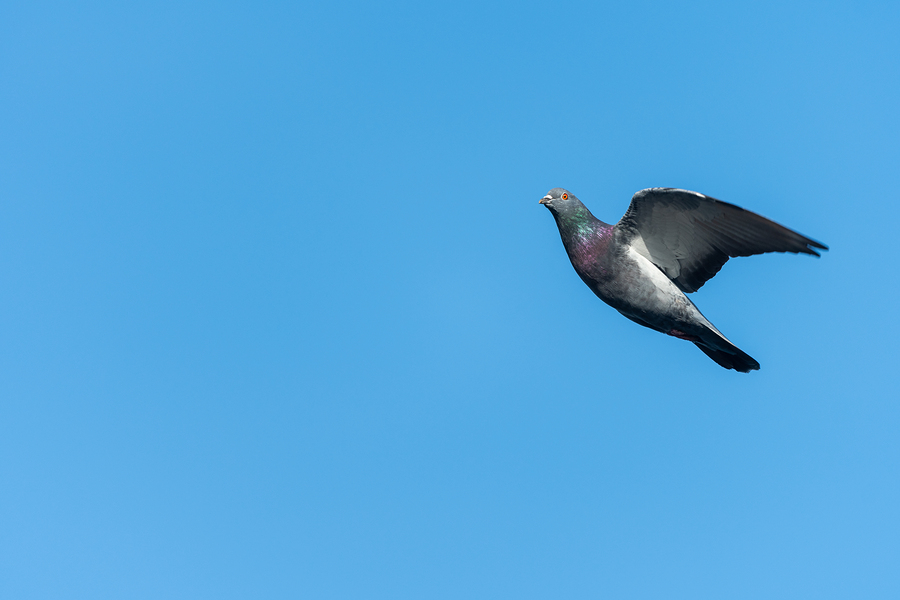
There are Fanciers who regard long distance events as the Blue Riband of Pigeon Racing, I would put on record that I am not one of them I think racing at any distance is pretty easy and winning at any distance is difficult.
I am in favour of races that can be completed in one day as I feel there are too many unplanned and unfair factors in a race that extends overnight.
There is a belief that Hens trained naturally are the most likely candidates to win long distance races so I will outline a system below that has proven successful over the years
I would not race a yearling hen over 500 miles so I would looking at hens that are 2 years and older.
The best condition to send a hen is sitting 10 to 12 days, when she has fully recovered from the exertions of egg laying and getting motivated by the potential birth of offspring.
To prepare the Hen, she can be sent to two/three warm up races between 100 and say 250 miles depending upon her nesting condition. The Hen is then given two weeks break i.e. skip a race and entered the targeted 500 miler – when she is fit from her earlier races, fully recovered, motivated and full of energy for the race.
To achieve the correct nesting timing the hen is say sent to the first two races sitting eggs that are then removed after the second race. The hen can go to a third short race if she is in good condition and if racing in the first two races she was comfortably in race time. The hen then she misses a race so for the 500 miler she should be sitting a new set of eggs about 10 to 12 days.
To cover the last paragraph in more detail with some example dates ( the reader will have to look at their own race program and work backwards)
In my Federation the 1st Old Bird (OB) race is the 11 April, therefore five weeks prior to that date at the beginning of March, I start OB training. The Cocks and Hens have to be trained separately so that eggs or chicks are always warm and protected. I start the tosses at 15 miles and extend to 30 miles. The training to be continued until the pigeons are coming at a race pace which by my measure means for 30 miles an average time of the order of 45 minutes. I do not train the hens two days either side of an expected egg laying date. I would start earlier if the temperature and weather is good as I would want to get some training in when the pigeons are on eggs rather than youngsters.
The approximate date we want the hen to lay is 1st/3rd April (10 to 7 days before the 1st race. As the hen will normally lay 8 to 10 days after mating then the mating date should be around the 22nd/23rd March. If you want to mate the pigeons earlier and raise one or two youngsters this will be fine as long as the schedule of getting the hen laying on schedule is achieved (in my case first week of April) and the training schedule has the birds race fit.
If we stay with these dates then the first round of eggs will be suitable for the first two warm up short races (100 to 250 miles) of the season. After the second race these eggs should be removed to prepare the hen to lay a second round of eggs for our target race.
I did mention above I prefer a race to be completed on the race day, obviously this can involve pigeons arriving in the latter part of the day (in the twilight). To prepare your pigeons to fly a little later in the day make some short tosses in the late afternoon. It is a good idea to have some lights shining on your loft especially the trap when the daylight is failing so the pigeons can safely trap late on. I have a whistle and flashing light at feeding time so the pigeons are positively acquainted with lights , whistle, food and safety. Those Fanciers who enter their birds in races they expect to least more than one day should obviously train their birds early in the morning as well as the evening to accustom them to getting up and flying home for breakfast.
The cocks also race to similar systems although most Fanciers report that cocks sometimes are more strongly motivated to return to a young bird rather than eggs but the Fanciers should pay attention to the habits and traits of each bird to get the best results.
The motivation of the pigeon with the training are two important factors in successful pigeon racing one other is providing the correct fuel, I generally provide a good quality racing mix that I lighten when the pigeons return from a race and provide more fats and carbohydrates two/three days before basketing.

Leave a Reply
You must be logged in to post a comment.